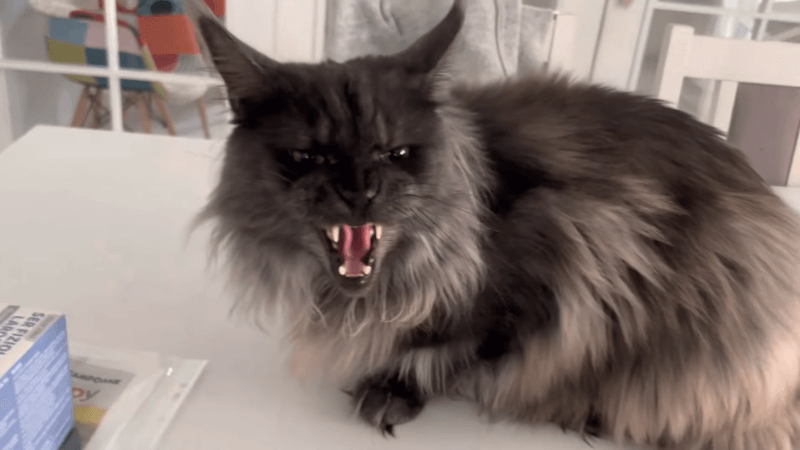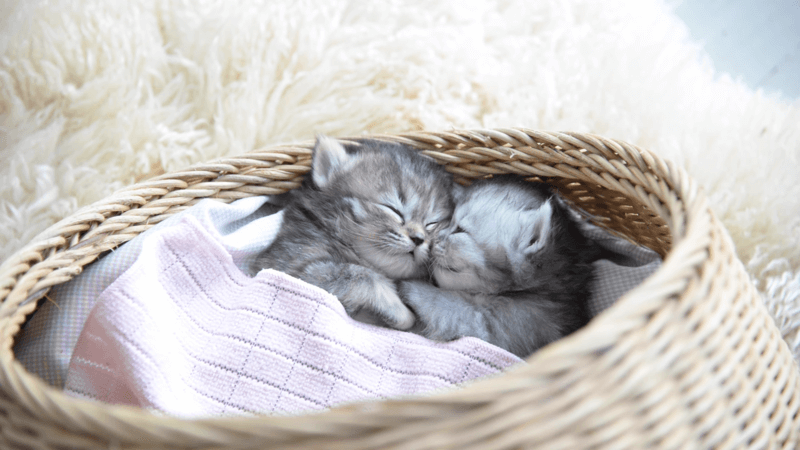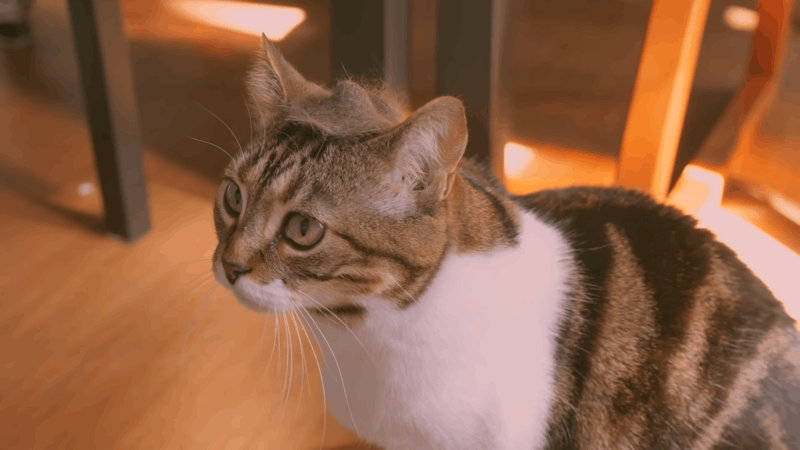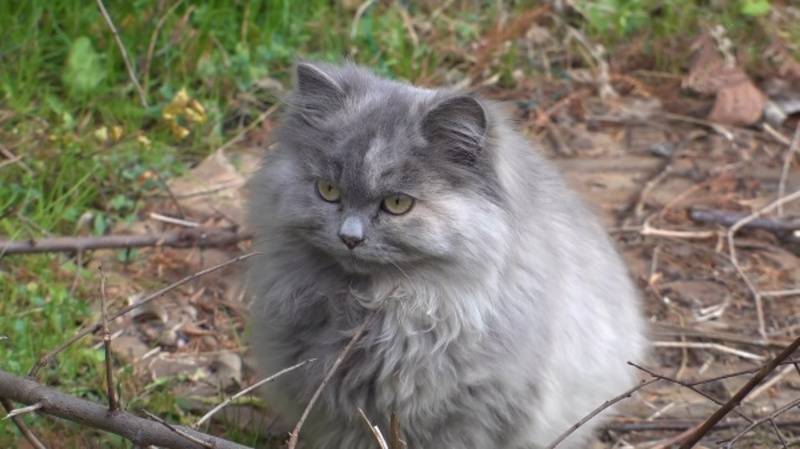No products in the cart.
People always want to find the best products for their pets and CBD for cat aggression is the best choice. CBD oil has garnered significant interest among pet owners and experts as a potential solution for managing challenging feline behaviors. Whether it’s sudden bursts of temper or ongoing hostility, comprehending the triggers behind aggression and finding effective interventions is a key concern for cat lovers.
In this article, we will explore the potential of CBD as a remedy for cat aggression, why is my cat being aggressive all of a sudden, and does CBD help aggressive cats enhance the well-being of our cherished feline companions.
What Is CBD for Cat Aggression?
CBD, which stands for cannabidiol, is a natural compound found in hemp plants. CBD interacts with a system in the cat’s body called the endocannabinoid system, which plays a role in mood and stress regulation. Some cat owners and vets have noticed that CBD cat might help cats feel more relaxed and less anxious, which could contribute to reducing aggressive behavior.

Causes of Sudden Aggression
Sometimes your cat can suddenly act all feisty and aggressive. There are a bunch of reasons behind it:
- Fear: Just like when we’re scared, cats might get aggressive if they’re feeling threatened or uneasy.
- Pain or Health Issues: If your kitties aren’t feeling well or have some hidden pain, they might get cranky and lash out.
- Protecting Territory: Changes in their space, like new pets or rearranged furniture, can make them super territorial and aggressive.
- Anger Misdirection: If they can’t get back at what’s bothering them directly, they might take it out on something or someone else.
- Stress Overload: Major changes, like moving or disruptions to their routine, can lead to aggression when they’re feeling stressed.
- Play Gone Wild: Cats can be rough when they play, but sometimes their playful aggression can cross the line.
- Squabbles Between Cats: If you’ve got more than one cat, they might not always get along, leading to some pretty hairy fights.
Signs of Cat Aggression
Recognizing signs of cat aggression is crucial for addressing the issue and ensuring the safety of the cat, so how do you spot aggression in your feline friend? Keep an eye out for these telltale signs:
- Hissy Fits: If you hear hissing or growling, that’s a pretty clear sign they’re not in a good mood.
- Paw Whacking: Swatting and scratching are classic aggressive moves that cats might pull.
- Ears Gone Flat: Flattened ears usually mean they’re on the defensive or ready to throw down.
- Tail Tales: A raised, fluffy tail can mean they’re agitated, while a low, thrashing tail might show irritation.
- Fluffed Up Fur: When their fur stands up on end, it’s like a neon sign that they’re worked up.
- Stiff as a Board: If they look stiff and tense, that’s a sign they might be getting aggressive.
- Leap Attacks: Sudden jumps or lunges can be their way of showing aggression.
- Duck and Cover: Sometimes they might just want to get away, so they’ll hide or run off.
The Impact of Aggression on Cats
The impact of aggression on cats can be multifaceted and encompass various aspects of their physical and psychological well-being.
- Stress and Anxiety: Aggressive encounters can induce high levels of stress and anxiety in cats. Chronic stress can weaken their immune systems, making them more susceptible to illnesses and affecting their overall health.
- Behavioral Changes: Aggression can lead to changes in a cat’s behavior. They might become more withdrawn, defensive, or even lash out in response to perceived threats. Such behavioral shifts can disrupt the cat’s usual routine and interactions.
- Fear and Mistrust: Cats exposed to aggression, especially if they are the target, can develop fear and mistrust. This fear can linger beyond the initial aggressive event, making them wary of people, animals, or situations that remind them of the encounter.
- Physical Injuries: Aggressive interactions can result in physical injuries like scratches or bites. These injuries can lead to infections and other health complications, requiring medical attention and potentially affecting the cat’s overall health.
- Disrupted Social Dynamics: In multi-pet households, aggression between cats can lead to ongoing conflicts. This disrupts harmonious social dynamics and can create an atmosphere of tension and stress.
- Isolation and Reduced Well-being: Some cats may isolate themselves to avoid potential aggression. This isolation can lead to reduced physical activity, mental stimulation, and play, ultimately affecting their overall well-being.
- Strain on Human-Animal Bond: Aggressive behavior can strain the bond between cats and their owners. Cats displaying aggression may avoid positive interactions with their human companions, reducing the quality of their relationship.
- Risk of Abandonment: If aggression remains unaddressed and escalates, it can become a serious concern that prompts owners to consider rehoming or abandoning their cats. Managing aggressive behavior can be challenging, and some owners might feel overwhelmed.
- Quality of Life: Ultimately, the combination of stress, fear, behavioral changes, and potential physical harm can significantly diminish a cat’s overall quality of life.
Why Is My Cat Being Aggressive All of a Sudden?
Sudden aggression in cats can be triggered by a variety of factors. Common causes include changes in their environment, health issues, fear, stress, and even redirected aggression. New additions to the household, rearranged furniture, or the presence of other animals can disrupt their routine and trigger defensive behavior. Underlying medical conditions, such as pain or discomfort, might also lead to sudden aggression. It’s important to assess recent changes, monitor their behavior, and consider seeking veterinary advice to identify and address the underlying cause.

Types of Cat Aggression
- Territorial Aggression: Cats can display aggressive behavior when they feel their territory is threatened by other animals or even changes in the environment.
- Fear-Based Aggression: Cats might become aggressive if they feel threatened or scared by new people, animals, or unfamiliar situations.
- Redirected Aggression: This occurs when a cat, unable to confront the source of its frustration, redirects its aggression onto another target, which can be another pet or even a human.
- Play Aggression: Overly rough play can sometimes escalate into aggressive behavior. Cats might bite or scratch during play sessions.
- Maternal Aggression: Nursing mothers can become aggressive if they perceive a threat to their kittens.
- Pain-Induced Aggression: Cats in pain or discomfort might act aggressively as a defense mechanism.
- Predatory Aggression: Some cats might display aggression while hunting or stalking, especially towards smaller animals or moving objects.
Methods to Reduce Aggression
- Consult a Veterinarian: Rule out any underlying medical issues that might be contributing to the aggression.
- Identify Triggers: Recognize situations or stimuli that trigger aggression and try to minimize or avoid them.
- Positive Reinforcement: Reward calm and non-aggressive behavior with treats, praise, or play.
- Environmental Enrichment: Provide toys, scratching posts, and interactive play to keep your cat mentally and physically engaged.
- Slow Introductions: When introducing new pets or changes to the environment, do so gradually to reduce stress.
- Training and Behavior Modification: Use training techniques to redirect aggressive behavior and encourage positive actions.
- Safe Spaces: Offer hiding spots where your cat can retreat when they feel stressed or threatened.
- Pheromone Products: Feliway diffusers release calming pheromones that can help reduce stress and aggression.
- Play Therapy: Engage in interactive play sessions to redirect aggressive energy into more appropriate activities.
- Professional Help: If aggression persists or escalates, consider seeking advice from a veterinarian or animal behaviorist for a tailored behavior modification plan.
Does CBD Help Aggressive Cats?
CBD’s effectiveness in helping aggressive cats varies from one individual to another. While some cat owners and veterinarians have reported positive outcomes using CBD oil for cats to manage aggression, it’s important to note that research in this area is still ongoing. CBD for cat aggression interacts with the endocannabinoid system, which plays a role in mood regulation. This interaction could potentially help reduce anxiety, stress, and related behaviors that contribute to aggression. However, results are not guaranteed, and it’s recommended to consult a veterinarian before using CBD for aggressive behavior. A professional assessment can help determine if CBD is a suitable option for your cat’s specific situation.

CBD’s Potential Benefits
- Anxiety Reduction: CBD’s interaction with the endocannabinoid system might help alleviate anxiety, leading to reduced aggressive tendencies.
- Stress Relief: CBD’s calming effects could contribute to decreased stress levels, potentially resulting in fewer triggers for aggressive behavior.
- Calm Behavior: Cats might exhibit a more relaxed demeanor due to CBD’s potential to promote a sense of calm.
- Improved Social Interaction: CBD for cat aggression might help cats feel more at ease around other pets and people, leading to decreased aggressive reactions.
- Enhanced Well-Being: By addressing anxiety and stress, CBD could potentially enhance a cat’s overall quality of life.
Potential Risks and Side Effects
- Digestive Upset: Some cats might experience gastrointestinal disturbances, such as vomiting or diarrhea when introduced to CBD.
- Sedation: CBD’s calming properties might lead to increased sleepiness or lethargy in some cats.
- Medication Interactions: CBD could interact with certain medications, affecting their efficacy or causing unintended side effects.
- Allergic Reactions: Just like with any substance, cats can develop allergies to CBD, leading to skin irritations or other allergic responses.
- Dosage Precision: Finding the right CBD dosage for cats can be challenging, and incorrect dosing might result in ineffective results or adverse effects.
Choosing the Right CBD Products
Selecting appropriate CBD products for your cat requires careful consideration.
- Source and Quality: Opt for products derived from organic hemp grown without harmful chemicals. Choose products that undergo third-party testing for potency and safety.
- Pet-Specific Formulation: Look for CBD products designed for pets, with appropriate concentrations and ingredients suitable for cats.
- CBD Type: Choose between full-spectrum CBD (containing multiple cannabinoids) or CBD isolate (pure CBD). Full-spectrum products might offer a more comprehensive range of benefits.
- Form of CBD: Decide on tinctures or treats based on your cat’s preferences and ease of administration.
- Dosage: Determine the right dosage based on your cat’s weight, age, and the product’s concentration. Start with a low dose and gradually increase it.
- Consult Your Veterinarian: Before adding CBD to your cat’s routine, always check with your veterinarian first, especially if your cat has health issues or is taking medication.
- Monitoring: Observe your cat’s behavior and any changes closely after introducing CBD. Adjust the dosage as needed.
- Allergic Reactions: Watch for any allergic responses or adverse effects. If you notice any, discontinue use and consult your vet.
Conclusion
In conclusion, CBD for cat aggression offers a potential avenue for addressing feline behavioral issues. By understanding the root causes, recognizing the signs, and exploring suitable solutions like CBD, we can strive to create a peaceful and nurturing environment that fosters the physical and emotional well-being of our beloved feline friends.
I am Nelson Cooper, I pursue my passion for writing and my belief is that cats love humans. I enjoy traveling and have a deep appreciation for the beauty of nature, as well as a soft spot for animals, particularly cats.



